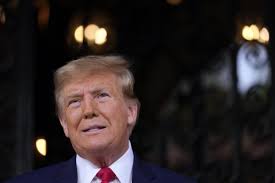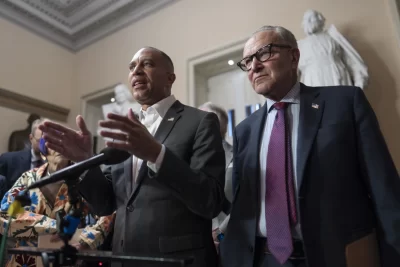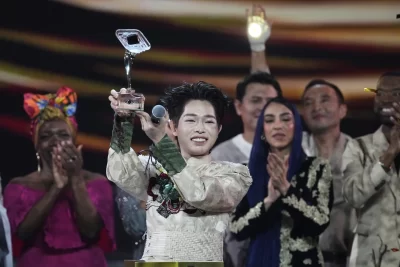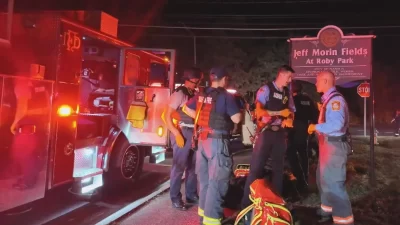
LAS VEGAS — Former President Donald Trump won Nevada’s Republican presidential caucuses Thursday after he was the only major candidate to compete, winning his third straight state as he tries to secure his party’s nomination.
Former U.N. Ambassador Nikki Haley, his last major rival still in the race, skipped the caucuses even though they are the only contest in Nevada that counts toward the GOP nomination. Haley cited what she considered an unfair process favoring Trump and instead ran in Nevada’s symbolic state-run presidential primary on Tuesday, when she finished behind the “none of these candidates” option.
Trump will win most, if not all, of the state’s 26 delegates. He needs to accrue 1,215 delegates to formally clinch the party’s nomination and could reach that number in March.
From Nevada, the GOP contest pivots to the South Carolina primary in Haley’s home state on Feb. 24. Trump remains popular in the deeply conservative state but Haley, who won two elections as South Carolina’s governor, is hoping her local roots give her an edge. Trump is eyeing a massive delegate haul during the March 5 Super Tuesday contests, which would move him closer to becoming the GOP’s presumptive nominee.
Trump, delivering a brief victory speech in Las Vegas, basked in reports of long lines in the Western state and told his supporters he was eager to declare victory in the upcoming South Carolina primary.
“We’re leading everybody,” he said. “Is there any way we can call the election for next Tuesday? That’s all I want.”
Though Trump has been the front-runner, Nevada’s caucuses were seen as especially skewed in his favor due to the intense grassroots support caucuses require candidates to harness around a state in order to win. Nevada’s state party gave him a greater edge last year when it barred candidates from running both in the primary and caucuses and also restricted the role of super PACs like the groups that were key to Florida Gov. Ron DeSantis’ campaign before he dropped out.
Caucuses typically require voters to show up for an in-person meeting at a certain day or time, while elections can offer more flexibility to participate, with polls open for most of the day on Election Day along with absentee or early voting. Nevada Republicans said they wanted certain rules in place like a requirement that participants show a government-issued ID.
Trump’s supporters waited in long lines Thursday. At one caucus site at a Reno-area elementary school, a line of nearly 1,000 people stretched around the corner and down the street 20 minutes after the caucuses opened.
Voters in line, some of whom were wearing Trump hats and shirts, said they came out to back the former president in a contest that would give him a third straight win in the Republican presidential race.
“I think it’s about backing Trump up and giving him the support that he needs. And to let people know that we’re supporting him,” said Heather Kirkwood, 47.
Trump has long been immensely popular among Nevada Republicans, but he had other perceived advantages among the party’s key figures. Nevada GOP Party Chair Michael McDonald and the state’s Republican National Committeeman Jim DeGraffenreid were among six Republicans in the state indicted on felony charges that they were so-called fake electors who sent certificates to Congress falsely claiming Trump won Nevada in 2020. The chairman of the Republican Party in Clark County — the largest county, which is home to Las Vegas — was another of the six so-called fake electors.
Republicans are increasingly converging behind Trump while he faces a deluge of legal problems, including 91 criminal charges in four separate cases. Trump is flexing his influence both in Congress — where Republicans rejected a border security deal after he pushed against it — and at the Republican National Committee, as chairwoman Ronna McDaniel could resign in the coming weeks after he publicly questioned whether she should stay in the job.
Trump still faces unprecedented jeopardy for a major candidate. A federal appeals panel ruled this week that Trump can face trial on charges that he plotted to overturn the results of the 2020 election, rejecting his claims that he is immune from prosecution. The U.S. Supreme Court on Thursday heard arguments in a case trying to keep Trump from the 2024 presidential ballot over his efforts to overturn his 2020 election loss. The justices sounded broadly skeptical of the effort.




